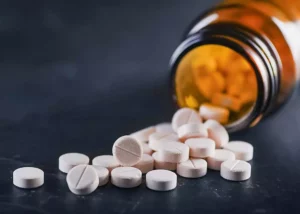
Detox in Fort Lauderdale- Your First Step Towards a Sober Life
Detox in Fort Lauderdale: Your First Step Towards a Sober Life Taking the first step toward a sober life can be daunting, but it’s also
We want to make your stay here at the Summer House Detox Center as comfortable as possible. We provide a very relaxed environment where we administer the medication and supervise you as you go through withdrawal effects.
Our facility will be a home away from home where you can safely and comfortably begin the process of becoming sober. Summer House provides comfortable services and amenities during your stay.
Contact Us

Seek help today from Miami’s premiere private in-patient drug and alcohol detox center.
Summer House Detox Center will be by your side during the important but difficult step of detoxification, which includes supervised medicated treatments.
Our medical staff and therapists will guide you through the road of recovery that is tailored to your addiction. Everyone is special and will be treated with the respect and dignity you deserve as you treat your disease.
Start fighting back today!
Learn

We gather valuable information needed to determine and provide the best level of care for you.

June 10, 2019
Seeking treatment for alcohol withdrawal in a safe, professional alcohol detox center is often necessary for recovery. This is because alcohol withdrawal is extremely unpredictable and can sometimes morph into a true medical emergency known as delirium tremens. Still, not everyone wants to go through alcohol withdrawal in a professional alcohol rehab center. Here are some of the top signs that can let you know if your alcohol withdrawal is likely to be severe enough to warrant a trip to alcohol detox in Florida.
Alcohol abuse over a prolonged period of time can lead to physical dependency. This occurs because a person who drinks often, in large amounts, and consistently, will start to experience a reliance on alcohol’s effects. Alcohol is like other addictive drugs in that it eventually changes the way the brain works after a person has been drinking steadily long enough.
According to the National Library of Medicine (NLM), those who abuse alcohol but are not physically dependent still have a problem with the substance and will often need professional help. Issues like tolerance, loss of control, and cravings for the substance can still occur, leading to serious side effects. But withdrawal symptoms only occur when a person is physically dependent on the substance. This is what separates alcohol abuse from alcoholism, and it is when alcohol detox is necessary for a safe recovery.
Do you ever find that you feel depressed, anxious, or nervous when you cannot drink? Do you experience these issues when you are coming down from drinking as well? If you notice that you go through mood disturbances when you are not drinking, it can be a strong sign of alcohol withdrawal. Often, these feelings are tied into a severe craving for alcohol, especially if you are addicted and dependent. But it is important to be able to recognize that mood disturbances are also a sign of alcohol withdrawal.
Mood disturbances from alcohol withdrawal can start out mild, but they can potentially intensify with little to no warning. One of the most severe symptoms of delirium tremens, the dangerous form of alcohol withdrawal, is psychosis, including hallucinations, delirium, and fear. In alcohol detox, patients are able to receive medications to minimize mood and psychological disturbances and prevent patients from experiencing these issues, sometimes through sedation (Industrial Psychiatry Journal).
When you stop drinking, do you experience shakiness, jumpiness, or tremors in your hands or other parts of your body? According to the NLM, these are strong signs of alcohol withdrawal. Some people get shaky every time they haven’t had a drink in a while. In order to prevent more issues from occurring, it is important to seek treatment for alcohol detox, as severe shaking can be a sign that more intense withdrawal symptoms aren’t far off.
Those who are dependent on alcohol and are suddenly unable to drink often start to experience severe fatigue or exhaustion. When this begins to occur, it is important to seek professional treatment, as it can be a sign that your body will start to go through alcohol withdrawal soon. In alcohol rehab centers, patients are often given medications that help them sleep, because even though you are fatigued, it will be hard for you to rest while going through alcohol withdrawal.
Have you ever tried to stop drinking alcohol or even to cut back on your alcohol intake in the past and not been able to? This is a strong sign of addiction to alcohol, which means you will need professional treatment in order to safely recover. This problem also often occurs when someone experiences severe cravings or other withdrawal symptoms and returns to alcohol use to make them stop.
In addition, it is very important to seek professional alcohol detox treatment if you have been through alcohol withdrawal before because, as stated by the NLM, delirium tremens is more likely to occur in those who have had a history of alcohol withdrawal. The more times you have attempted to stop drinking and/or experienced alcohol withdrawal, the more likely you are to be affected by this dangerous withdrawal syndrome.
People who drink large amounts of alcohol and have been doing so for several months or more are more likely to go through delirium tremens as a result of withdrawal (NLM). These include:
In addition, the likelihood of experiencing delirium tremens during alcohol withdrawal increases exponentially if you have been drinking heavily and abusing alcohol for at least 10 years.
The combination of alcohol abuse and addiction with an injury or illness can also increase the likelihood that you will experience delirium tremens if you try to go through withdrawal. For example, those who have a chronic illness, especially one that affects their immune system or those who currently have an infection, could be highly susceptible to this syndrome. Those who have experienced a recent injury, particularly one in the area of the head and neck, are also at risk.
Those who do not have social support from friends and family will often need alcohol withdrawal treatment in a professional alcohol detox setting. This is because it is extremely hard to go through withdrawal on one’s own and because there is always a possibility of experiencing severe withdrawal symptoms, like delirium tremens, without warning.
If you have loved ones who can look after you 24/7 as you navigate the process of alcohol withdrawal, you may potentially be able to go through the experience safely at home. However, if you lack this kind of support, it is a much better idea for you to seek alcohol detox in Florida.
We understand that many people do not like the idea of going through alcohol withdrawal treatment in a professional, inpatient detox center. Being away from your loved ones, your job, and your life can seem daunting, and because alcohol itself is such a normal part of American culture, many people minimize the severity of withdrawal from this particular substance. Still, it is much safer to seek alcohol detox treatment in all instances than to go it alone.
If you think you are likely to experience alcohol withdrawal or if you have already begun to notice the symptoms of this dangerous withdrawal syndrome, call our 24/7 hotline at 800-719-1090 today. You can also visit our addiction treatment center in Miami at 13550 Memorial Highway Miami, FL 33161. We are open 24 hours a day, 7 days a week. One of our knowledgeable addiction specialists will take your call and help you find the right treatment option for your safe recovery.
Alcohol withdrawal is a dangerous, unpredictable syndrome, and the safest option is to seek help from professionals who can assist you as you begin on the road to recovery today.

Detox in Fort Lauderdale: Your First Step Towards a Sober Life Taking the first step toward a sober life can be daunting, but it’s also

Detox Fort Lauderdale: Your First Step Towards a Sober Life Embarking on the journey to sobriety is a courageous decision, and choosing the right detox

Suboxone addiction is a condition that may feel insurmountable to overcome, but with the right support and approach, freedom is achievable. At the Summer House
For immediate assistance, please call our Admissions Specialists at 800-719-1090.


Speak With A Qualified Addiction Specialist 24/7